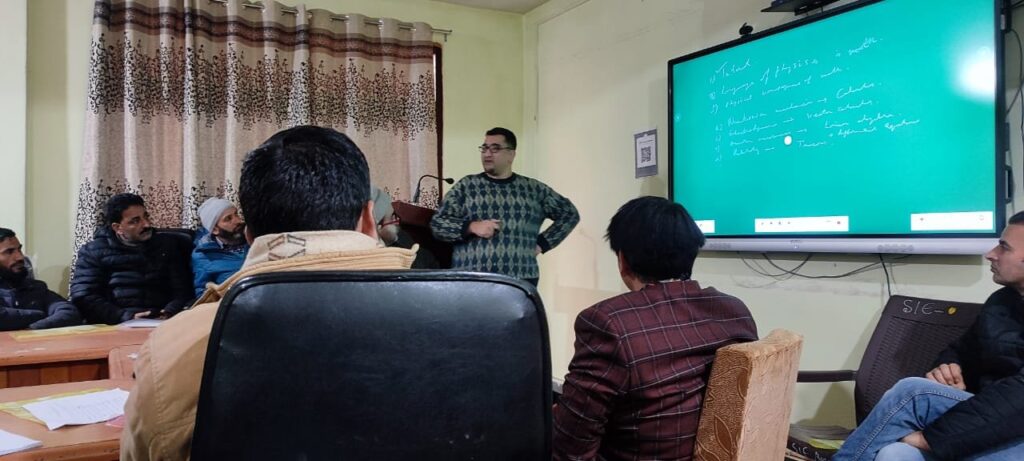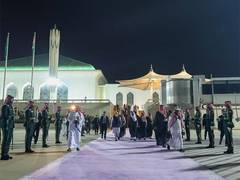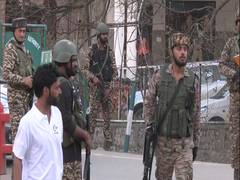SCERT concludes science workshop series on pedagogy, content enrichment
SRINAGAR, March 27: The State Council of Educational Research and Training (SCERT) recently organized a series of workshops for lecturers, with the aim of improving the quality of science education at the secondary level.

The workshops for the subjects namely Zoology, Botany, Physics, Chemistry and Environmental Science were conducted between December 2022 and March 2023 focused on enhancing pedagogical approaches and content enrichment.
The programs were designed to be interactive and engaging, with a focus on providing practical insights into the latest teaching methods and techniques. The programs included workshops, discussions, and hands-on activities that helped the lecturers to gain a deeper understanding of science teaching and learning.
During the orientation sessions, the lecturers were encouraged to share their experiences, challenges, and best practices in teaching of various science subjects. This helped to create a collaborative learning environment, where the participants could learn from each other and build a network of like-minded professionals.
The programs covered various topics such as lesson planning, classroom management, assessment and evaluation, and the use of technology in teaching. The lecturers were also introduced to the latest developments in science education, such as inquiry-based learning, flipped classrooms, and blended learning.
“The programs were highly beneficial for the lecturers, as they provided a platform for professional development and growth,” said a participating lecturer. “We were able to acquire new skills and knowledge, which we can apply in their teaching practice to enhance student learning and engagement.”
Overall, the SCERT’s orientation training programs have helped to raise the bar for science teaching in the higher secondary schools. The lecturers who participated in the programs are now better equipped to provide quality education to their students, and to inspire them to develop a passion for science and learning.
The training program was conducted by several experts from prestigious institutions such as Government Medical College (GMC), Srinagar, Institute of Mental Health and Neuro Sciences (IMHNS), Sher-i-Kashmir University of Agricultural Science and Technology (SKUAST), University of Kashmir (KU), Islamic University of Science and Technology (IUST), National Institute of Technology (NIT), along with professors from the higher education department and resource persons from SCERT.
The experts shed light on modern concepts of teaching in the light of the newly launched NEP-2020 education policy.
Pertinently, the NEP-2020 emphasizes the importance of science education in promoting critical thinking, problem-solving, and innovation, and encourages teachers to adopt a more student-centred approach to teaching. The training program provided an opportunity for lecturers to learn about these modern teaching methods and to develop their teaching skills.
SCERT is the premier education facility responsible for teacher training and research in the field of education.
The SCERT team played a vital role in organizing and executing the training program. The team included prominent faculty members like Dr Sajad Ahmad Mir, Dr Sajad Husain Mir, Ms. Asima Farooq Shah, Rabia Naseem Mughal, Riyaz Ahmad Dar, Sheikh Gulzar, Dr Jan Mudasir Gul and Javaid Ahmad Dar.
Addressing the participants, Joint Director, SCERT, Mohammad Sharif Dehdar, said the workshops such as these are a significant step towards improving the quality of science education at the secondary level.
“It will help lecturers to gain a better understanding of modern teaching methods and to develop their teaching skills,” he said. “This, in turn, will lead to better learning outcomes for students and will help to promote a culture of scientific inquiry and innovation in the valley.”
Overall, the program, Dehdar said, is a laudable initiative that deserves recognition and support.
(NOTE: PRESS RELEASE PUBLISHED AS RECEIVED)






